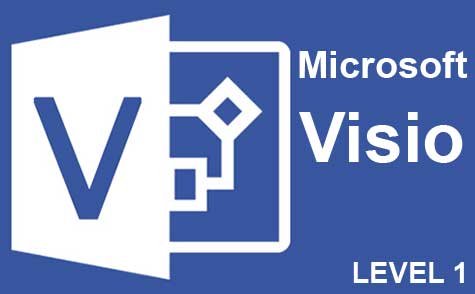Online Class: Business Analysis

no certificate
with CEU Certificate*
-
13Lessons
-
24Exams &
Assignments -
3,627Students
have taken this course -
3Hours
average time -
0.3CEUs
Course Description
Driving Organizational Change: The Role of Business Analysis
In an era marked by rapid technological advances and shifting market demands, businesses are constantly seeking opportunities to innovate and remain competitive. Within this context, the ability to identify, articulate, and implement necessary changes becomes invaluable. Enter the role of a Business Analyst (BA).
Course Overview:
Business Analysts bridge the gap between stakeholders and project teams, ensuring that every project aligns with organizational goals and meets the demands of the market. Whether it’s spearheading the launch of an innovative product or transitioning to a groundbreaking software package, the BA stands at the forefront, synthesizing input, delineating project requirements, and guiding execution.
This course is meticulously designed to provide aspiring BAs with an in-depth understanding of the multifaceted world of business analysis. Beyond theoretical concepts, this course integrates real-world examples, ensuring that students not only understand the "what" and "why" but also the "how" of business analysis.
Course Highlights:
-
A Career in Business Analysis: An introductory lesson exploring the evolving landscape of business analysis, its significance, and the various opportunities it offers.
-
Enterprise Analysis: A three-part series diving into the nuances of evaluating business needs and challenges, determining project feasibility, and aligning them with strategic objectives.
-
Requirements Planning and Management: Over three comprehensive sessions, learn to define, prioritize, and manage project requirements. Delve into techniques like SWOT analysis, risk assessment, and stakeholder mapping.
-
Requirements Elicitation: Understand the art of gathering precise and relevant information. These sessions will introduce tools like interviews, surveys, and focus group discussions.
-
Requirements Analysis & Documentation: Delve into the methods used to categorize, specify, and validate the information garnered, ensuring that projects remain on track and meet their desired outcomes.
-
Requirements Communication: Gain expertise in conveying project requirements to a variety of stakeholders, ensuring clarity and consensus at every step.
-
Solution Assessment and Validation: Conclude with a thorough examination of the steps taken post-project completion. Learn to assess the efficacy of the solution and ensure it aligns with the initial requirements and business objectives.
Practical Implications:
For instance, imagine Company X wants to transition to a new customer management software. The BA would first identify the specific needs of the company and its stakeholders. They'd then scout the market, identify potential solutions, and document each solution's pros and cons. Once a decision is made, the BA would guide the implementation process, ensuring that every requirement is met and every stakeholder is kept informed. Post-implementation, they'd assess the software's performance, ensuring it meets the initial criteria and aids the company's growth.
Who Should Enroll?
-
Aspiring Business Analysts: Kickstart your journey with a foundational understanding of the domain, preparing you for a rewarding career.
-
Project Managers: Enhance your ability to oversee projects effectively by understanding the intricacies of requirements planning and management.
-
Stakeholders: Gain a deeper understanding of project dynamics, enabling informed decision-making and collaboration.
-
Professionals in Transition: If you're considering a career change, understanding business analysis can open doors to a plethora of opportunities across industries.
In an ever-evolving business environment, the importance of a competent Business Analyst cannot be overstated. This course promises to equip you with the skills and knowledge to navigate the complex corridors of business projects, ensuring that every venture you're a part of stands the best chance of success. Join us, and step into the exciting world of business analysis.
- Completely Online
- Self-Paced
- Printable Lessons
- Full HD Video

- 6 Months to Complete
- 24/7 Availability
- Start Anytime
- PC & Mac Compatible
- Android & iOS Friendly
- Accredited CEUs

Course Lessons
Lesson 1. Business Analysis: Essentials for a Rewarding Career
 Lesson 1 Video
Lesson 1 Video Review Practice Worksheet: Lesson-1-Activity-9519.pdf
Review Practice Worksheet: Lesson-1-Activity-9519.pdf Lesson discussions: Business Analysis Course; Reasons for Taking this Course
Lesson discussions: Business Analysis Course; Reasons for Taking this Course Complete Assignment: An Introduction
Complete Assignment: An Introduction Complete: Lesson 1 Assignment
Complete: Lesson 1 Assignment Assessment: Quiz for Lesson 1 - A Career in Business Analysis
Assessment: Quiz for Lesson 1 - A Career in Business Analysis Assessment: Lesson 1 Review Exam
Assessment: Lesson 1 Review Exam
Lesson 2. Enterprise Analysis Essentials
 Lesson 2 Video
Lesson 2 Video Review Practice Worksheet: Lesson-2-Activity-9521.pdf
Review Practice Worksheet: Lesson-2-Activity-9521.pdf Complete: Lesson 2 Assignment
Complete: Lesson 2 Assignment Assessment: Quiz for Lesson 2 - Enterprise Analysis: Part One
Assessment: Quiz for Lesson 2 - Enterprise Analysis: Part One
Lesson 3. Elaborate Strategies for Crafting Business Architecture and Project Feasibility
 Lesson 3 Video
Lesson 3 Video Review Practice Worksheet: Lesson-3-WorkSheet-9522.pdf
Review Practice Worksheet: Lesson-3-WorkSheet-9522.pdf Lesson discussions: Business Architecture Views
Lesson discussions: Business Architecture Views Complete: Lesson 3 Assignment
Complete: Lesson 3 Assignment Assessment: Quiz for Lesson 3 - Enterprise Analysis: Part Two
Assessment: Quiz for Lesson 3 - Enterprise Analysis: Part Two
Lesson 4. Strategic Enterprise Decision Making
 Lesson 4 Video
Lesson 4 Video Review Practice Worksheet: Lesson-4-HomeWork-9524.pdf
Review Practice Worksheet: Lesson-4-HomeWork-9524.pdf Complete: Lesson 4 Assignment
Complete: Lesson 4 Assignment Assessment: Quiz for Lesson 4 - Enterprise Analysis: Part Three
Assessment: Quiz for Lesson 4 - Enterprise Analysis: Part Three
Lesson 5. Effective Requirement Gathering for Project Success
 Lesson 5 Video
Lesson 5 Video Review Practice Worksheet: Lesson-5-WordSearch-9525.pdf
Review Practice Worksheet: Lesson-5-WordSearch-9525.pdf Complete: Lesson 5 Assignment
Complete: Lesson 5 Assignment Assessment: Quiz for Lesson 5 : Requirements Planning and Management: Part One
Assessment: Quiz for Lesson 5 : Requirements Planning and Management: Part One
Lesson 6. Essentials of Requirements Planning
 Lesson 6 Video
Lesson 6 Video Review Practice Worksheet: Lesson-6-WordSearch-9526.pdf
Review Practice Worksheet: Lesson-6-WordSearch-9526.pdf Complete: Lesson 6 Assignment
Complete: Lesson 6 Assignment Assessment: Quiz for Lesson 6 - Requirements Planning and Management: Part Two
Assessment: Quiz for Lesson 6 - Requirements Planning and Management: Part Two
Lesson 7. Mastering Estimates and Scope in Requirements Planning
 Lesson 7 Video
Lesson 7 Video Review Practice Worksheet: Lesson-7-Activity-9528.pdf
Review Practice Worksheet: Lesson-7-Activity-9528.pdf Assessment: Quiz for Lesson 7 - Requirements Planning and Management: Part Three
Assessment: Quiz for Lesson 7 - Requirements Planning and Management: Part Three
Lesson 8. The Essentials of Eliciting Project Requirements
 Lesson 8 Video
Lesson 8 Video Review Practice Worksheet: Lesson-8-Downloadable-9529.pdf
Review Practice Worksheet: Lesson-8-Downloadable-9529.pdf Lesson discussions: Elicitation Process
Lesson discussions: Elicitation Process Assessment: Quiz for Lesson 8 - Requirements Elicitation: Part One
Assessment: Quiz for Lesson 8 - Requirements Elicitation: Part One
Lesson 9. Refining Your Requirements Elicitation Approach
 Lesson 9 Video
Lesson 9 Video Review Practice Worksheet: Lesson-9-WordSearch-9531.pdf
Review Practice Worksheet: Lesson-9-WordSearch-9531.pdf Assessment: Quiz for Lesson 9 - Requirements Elicitation: Part Two
Assessment: Quiz for Lesson 9 - Requirements Elicitation: Part Two
Lesson 10. Crafting the Business Domain Model for Effective Solution Development
 Lesson 10 Video
Lesson 10 Video Review Practice Worksheet: Lesson-10-Downloadable-9532.pdf
Review Practice Worksheet: Lesson-10-Downloadable-9532.pdf Assessment: Quiz for Lesson 10 - Requirements Analysis & Documentation: Part One
Assessment: Quiz for Lesson 10 - Requirements Analysis & Documentation: Part One
Lesson 11. Efficient Requirements: Validation and Verification
 Lesson 11 Video
Lesson 11 Video Review Practice Worksheet: Lesson-11-WorkSheet-9534.pdf
Review Practice Worksheet: Lesson-11-WorkSheet-9534.pdf Complete: Lesson 11 Assignment
Complete: Lesson 11 Assignment Assessment: Quiz for Lesson 11 - Requirements Analysis & Documentation: Part Two
Assessment: Quiz for Lesson 11 - Requirements Analysis & Documentation: Part Two
Lesson 12. Communicating Project Requirements: A Deep Dive into Strategy, Planning, and Stakeholder Engagement
 Lesson 12 Video
Lesson 12 Video Review Practice Worksheet: Lesson-12-Activity-9535.pdf
Review Practice Worksheet: Lesson-12-Activity-9535.pdf Complete: Lesson 12 Assignment
Complete: Lesson 12 Assignment Assessment: Quiz for Lesson 12 - Requirements Communication
Assessment: Quiz for Lesson 12 - Requirements Communication
Lesson 13. Transitioning Well: From Requirements to Usable Solutions
 Lesson 13 Video
Lesson 13 Video Review Practice Worksheet: Lesson-13-HomeWork-9537.pdf
Review Practice Worksheet: Lesson-13-HomeWork-9537.pdf Lesson discussions: Course Completion Poll: Your Thoughts; Program Evaluation Follow-up Survey (End of Course); Course Comments
Lesson discussions: Course Completion Poll: Your Thoughts; Program Evaluation Follow-up Survey (End of Course); Course Comments Assessment: Quiz for Lesson 13 - Solution Assessment and Validationac
Assessment: Quiz for Lesson 13 - Solution Assessment and Validationac Assessment: The Final Exam
Assessment: The Final Exam
Learning Outcomes
- Define the role and responsibilities of a business analyst within an enterprise, including stakeholder communication and requirement validation.
- Identify and describe the phases and tasks involved in the business analysis process, such as requirements gathering and strategic planning.
- Define the six major components of enterprise analysis and describe their input-output relationships as depicted in Figure 2-1.
- Identify criteria to evaluate project size and determine appropriate enterprise analysis activities for small, medium, and large projects.
- Define the process used to create a business architecture by identifying key components such as strategies, objectives, and stakeholder roles.
- Evaluate project viability through feasibility studies by analyzing economic, operational, and technical factors to determine alignment with organizational goals.
- Conduct an initial risk assessment to evaluate potential project risks and recommend corresponding mitigation strategies.
- Define the project scope by identifying business objectives, expected deliverables, and boundaries in coordination with stakeholders.
- Define and document all team roles relevant to requirements activities using a RACI matrix to clarify responsibilities and accountabilities.
- Identify and categorize project stakeholders through interviews and surveys to create a comprehensive stakeholder summary outlining their interests and roles.
- Analyze and document requirements using predefined methodologies to ensure alignment with stakeholder needs and organizational standards throughout the requirements planning phase.
- Demonstrate the ability to identify and categorize potential risks in requirements planning and propose appropriate mitigation strategies.
- Define the key tasks necessary for establishing accurate project requirements estimates, including identifying milestones, estimating efforts, and managing risks.
- Demonstrate mastery of lesson content at levels of 70% or higher.
Additional Course Information

- Document Your Lifelong Learning Achievements
- Earn an Official Certificate Documenting Course Hours and CEUs
- Verify Your Certificate with a Unique Serial Number Online
- View and Share Your Certificate Online or Download/Print as PDF
- Display Your Certificate on Your Resume and Promote Your Achievements Using Social Media

Choose Your Subscription Plan
No Certificate / No CEUs
This course only
| Includes certificate | X |
| Includes CEUs | X |
| Self-paced |

|
| Instructor support |

|
| Time to complete | 6 months |
| No. of courses | 1 course |
Certificate & CEUs
This course only
| Includes certificate |

|
| Includes CEUs |

|
| Self-paced |

|
| Instructor support |

|
| Time to complete | 6 months |
| No. of courses | 1 course |
Certificates & CEUs
Includes all 600+ courses
| Includes certificate |

|
| Includes CEUs |

|
| Self-paced |

|
| Instructor support |

|
| Time to complete | 12 Months |
| No. of courses | 600+ |
Certificates & CEUs
Includes all 600+ courses
| Includes certificate |

|
| Includes CEUs |

|
| Self-paced |

|
| Instructor support |

|
| Time to complete | 24 Months |
| No. of courses | 600+ |
Student Testimonials
- "Nothing was a surprise on the quizzes, everything was well explained." -- Andrea C.
- "The material was very thorough." -- Leah F.
- "Great Class!" -- Jose R.
- "I liked the fact that is was broken down into multiple sections. I didn't realize how involved it is being a Business Analysis." -- Christy C.
- "The lesson material was invaluable. Questions are extended outside of the course. It was how well we interpreted the lessons. Great experience." -- Raja K.
Related Courses
-
 26 hours
2.6 CEUs
Human Resources Productivity Course Bundle
+ More Info
26 hours
2.6 CEUs
Human Resources Productivity Course Bundle
+ More Info
-
 72 hours
7.2 CEUs
Writing Help Course Bundle
+ More Info
72 hours
7.2 CEUs
Writing Help Course Bundle
+ More Info
-
 36 hours
3.6 CEUs
Ultimate Secretary Training Bundle
+ More Info
36 hours
3.6 CEUs
Ultimate Secretary Training Bundle
+ More Info
-
 14 hours
1.4 CEUs
Report Writing 101
+ More Info
14 hours
1.4 CEUs
Report Writing 101
+ More Info
-
 8 hours
0.8 CEUs
Motivational and Public Speaking
+ More Info
8 hours
0.8 CEUs
Motivational and Public Speaking
+ More Info
-
 16 hours
1.6 CEUs
Advertising Copywriter
+ More Info
16 hours
1.6 CEUs
Advertising Copywriter
+ More Info
-
 6 hours
0.6 CEUs
Workplace Violence: A Guide to Responding and Preventing
+ More Info
6 hours
0.6 CEUs
Workplace Violence: A Guide to Responding and Preventing
+ More Info
-
 9 hours
0.9 CEUs
Product Management 101
+ More Info
9 hours
0.9 CEUs
Product Management 101
+ More Info
-
 8 hours
0.8 CEUs
How to Be an Effective Administrative Assistant
+ More Info
8 hours
0.8 CEUs
How to Be an Effective Administrative Assistant
+ More Info
-
 12 hours
1.2 CEUs
How to Write Case Studies
+ More Info
12 hours
1.2 CEUs
How to Write Case Studies
+ More Info
-
 11 hours
1.1 CEUs
How to Write Effective Policies and Procedures
+ More Info
11 hours
1.1 CEUs
How to Write Effective Policies and Procedures
+ More Info
-
 7 hours
0.7 CEUs
Employment Law Fundamentals
+ More Info
7 hours
0.7 CEUs
Employment Law Fundamentals
+ More Info
-
 6 hours
0.6 CEUs
Debt Reduction
+ More Info
6 hours
0.6 CEUs
Debt Reduction
+ More Info
-
 6 hours
0.6 CEUs
Delegation Skills
+ More Info
6 hours
0.6 CEUs
Delegation Skills
+ More Info
-
 5 hours
0.5 CEUs
Habits of Millionaires
+ More Info
5 hours
0.5 CEUs
Habits of Millionaires
+ More Info
-
 5 hours
0.5 CEUs
Recruitment and Retention Strategies
+ More Info
5 hours
0.5 CEUs
Recruitment and Retention Strategies
+ More Info
-
 8 hours
0.8 CEUs
Decision Making Skills
+ More Info
8 hours
0.8 CEUs
Decision Making Skills
+ More Info
-
 7 hours
0.7 CEUs
Microsoft Visio Level 1
+ More Info
7 hours
0.7 CEUs
Microsoft Visio Level 1
+ More Info
-
 6 hours
0.6 CEUs
Sustainable Development for Business
+ More Info
6 hours
0.6 CEUs
Sustainable Development for Business
+ More Info
-
 5 hours
0.5 CEUs
Lawful Employee Termination
+ More Info
5 hours
0.5 CEUs
Lawful Employee Termination
+ More Info
-
 5 hours
0.5 CEUs
Accounts Receivable Training
+ More Info
5 hours
0.5 CEUs
Accounts Receivable Training
+ More Info
-
 9 hours
0.9 CEUs
ABCs of Technical Writing
+ More Info
9 hours
0.9 CEUs
ABCs of Technical Writing
+ More Info
-
 6 hours
0.6 CEUs
Generational Diversity in the Workplace
+ More Info
6 hours
0.6 CEUs
Generational Diversity in the Workplace
+ More Info
-
 8 hours
0.8 CEUs
Community Development 101
+ More Info
8 hours
0.8 CEUs
Community Development 101
+ More Info
-
 7 hours
0.7 CEUs
Innovative Thinking Skills
+ More Info
7 hours
0.7 CEUs
Innovative Thinking Skills
+ More Info
-
 8 hours
0.8 CEUs
Become a General Secretary
+ More Info
8 hours
0.8 CEUs
Become a General Secretary
+ More Info
-
 7 hours
0.7 CEUs
Financial Analysis 101: Planning and Control
+ More Info
7 hours
0.7 CEUs
Financial Analysis 101: Planning and Control
+ More Info
-
 8 hours
0.8 CEUs
Human Resources Management
+ More Info
8 hours
0.8 CEUs
Human Resources Management
+ More Info
-
 7 hours
0.7 CEUs
Personal Communication Skills Level 4
+ More Info
7 hours
0.7 CEUs
Personal Communication Skills Level 4
+ More Info
-
 5 hours
0.5 CEUs
Mastering Conversation Skills
+ More Info
5 hours
0.5 CEUs
Mastering Conversation Skills
+ More Info
-
 7 hours
0.7 CEUs
Management Consultant 101
+ More Info
7 hours
0.7 CEUs
Management Consultant 101
+ More Info
-
 2 hours
0.2 CEUs
Purchasing and Vendor Management 101
+ More Info
2 hours
0.2 CEUs
Purchasing and Vendor Management 101
+ More Info
-
 9 hours
0.9 CEUs
Microsoft Project Level 1
+ More Info
9 hours
0.9 CEUs
Microsoft Project Level 1
+ More Info
-
 7 hours
0.7 CEUs
Preventing Workplace Harassment
+ More Info
7 hours
0.7 CEUs
Preventing Workplace Harassment
+ More Info
-
 11 hours
1.1 CEUs
Writing Effective Emails in the Workplace
+ More Info
11 hours
1.1 CEUs
Writing Effective Emails in the Workplace
+ More Info






